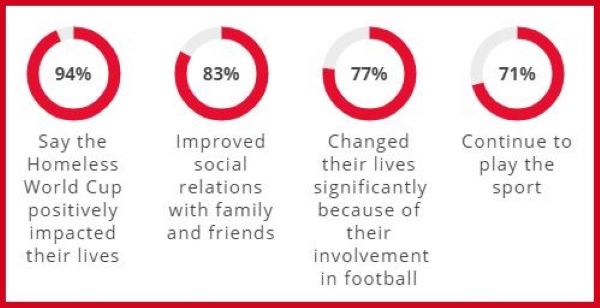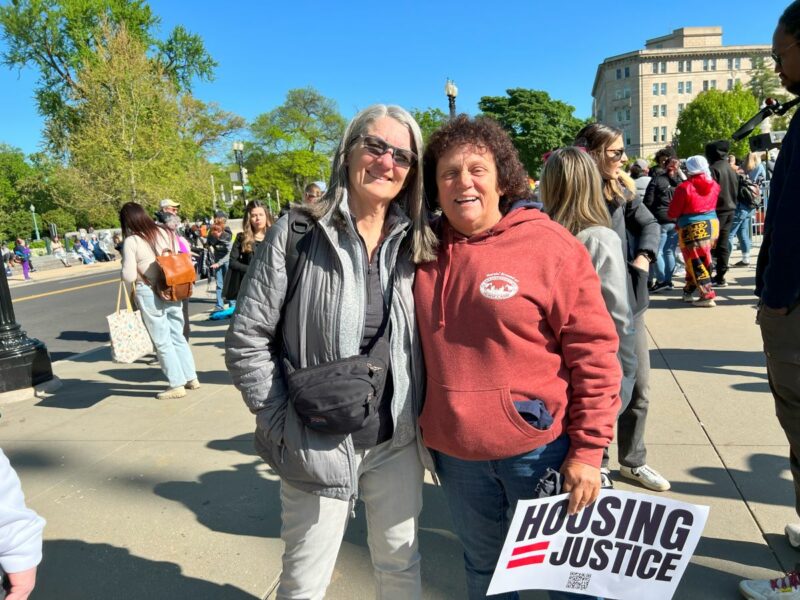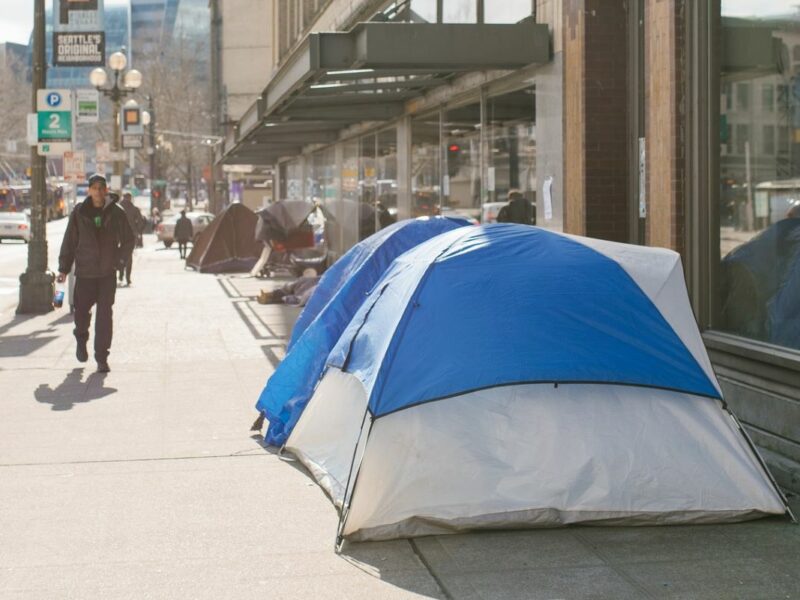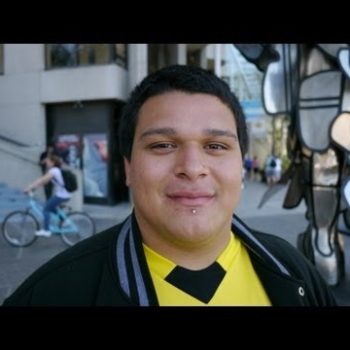Cardiff famously played host to the biggest sporting event of 2017—the UEFA Champions League Finals. Some 300,000 fans descended on the Welsh capital to watch Real Madrid beat Juventus 4-1, and millions more watched in homes and pubs the world over.
Less famously, but potentially lifesaving to many, Cardiff also hosted the Homeless World Cup from July 27-August 3, earlier this year. This tournament also attracted big numbers. More than 80,000 visitors came to see the festivities.
The Homeless World Cup represents just one of several efforts to bring sport to homeless people. These efforts are reaping benefits, both on the pitch and in the real world.
More Than Just A Game
While the link between exercise and physical health has long been recognized, modern research has shown that physical activity yields psychological and social benefits, too. Expounding on the need to prioritize exercise and sport, a college mental health authority explains “exercise promotes chemicals in the brain that improve your mood and make you more relaxed.” That feel-good feeling one gets after finishing their morning run or doing a set of 10 reps is a physiological response to the release of endorphins. Exercise also “reduces anxiety and enhances self-esteem.”
Sports, especially team-based ones, have an incredible capacity to make people feel included, a part of something bigger than themselves. That feeling of being a contributor fills a universal need.
These secondary benefits of exercise aren’t just a luxury to be exclusively enjoyed by the housed, or so an increasing amount of organizations are trying to assert. That’s why great lengths are being taken to connect homeless individuals with organized sport.
Consider what Judge Craig Mitchell is doing in Los Angeles. Mitchell formed the Skid Row Running Club connecting him with more than 300 former addicts and felons that are trying to turn their lives around.
Why running? Judge Mitchell answers: “Running is a mechanism for the participants to build relationships. You can be a horrible runner and benefit the same as our fast runners, because at the end of the day you’re going to be surrounded by people who really care about you and want to spend time with you. Everybody is welcome. We affirm, We listen, We support.”
Running has done the trick for many. Derek, a recovering alcoholic, credits the Skid Row Running Club with changing his life. “I always knew that once you get rid of one habit you have to replace it with a new habit. The running club kept me sober and as I do it, things start coming back together for me. I keep going forward. If I didn’t have the running club … I’d be back in my addiction.”
He’s not an outlier. Many fellow runners share his sentiments and have shared their stories. According to Mitchell, some of his fellow runners have been able to turn their lives around – attending college, obtaining steady employment, and staying sober.
The international language of football (read: soccer) has worked a treat for others.
Enter the Homeless World Cup.
Established in 2003, the annual tournament has been held all over the world, with teams hailing from dozens of countries. A core team of volunteers has been with the initiative since its inception, working hard to provide homeless athletes with a world class experience, even if only for a short period of time. Guides to show teams around the host city, laundry services for players’ kits, first aid centers, even quiet rooms for prayer – participants are supported on nearly every level. And they’re not playing in empty stadiums. Tens of thousands of spectators flock to the Homeless World Cup every year.
Invisible People had feet on the ground at the World Cup in Oslo in 2017. The tournament’s founder, Mel Young, describes the ambitions behind the Homeless World Cup:
“We’re building a movement… using a soccer ball to change lives and tell people’s stories behind homelessness.”
Peter Barr agrees with Young’s assessment of just how far such initiatives can reach:
“Players come from countries all over the world, both rich and poor. They all share one important factor – they’re all excluded in one way or another. They come together. They may not speak the same language, but they all speak the universal language of football, and that’s what unites them.”

Survey results, courtesy of Homeless World Cup
Those aren’t empty words. The Homeless World Cup has changed lives.
Take Camilla Lindén, a 40-year-old woman from Sweden. Sober for more than a year after two decades of substance abuse, Camilla says that soccer has been the difference maker. “I have never had anyone to call my own before. When you give up drugs, you are all alone. All your friends do drugs, and it is too easy to start taking them again. But with football, I have focus and purpose and a strong circle of support. I belong to something. Football has been like a best friend to me. I now have super self-esteem because I had the guts to do that. What else can I do? I believe in myself.”
The power of sport to unite people and create self-worth has been long understood. Using it as a tool to reach and improve the lives of homeless individuals is logical progression.












